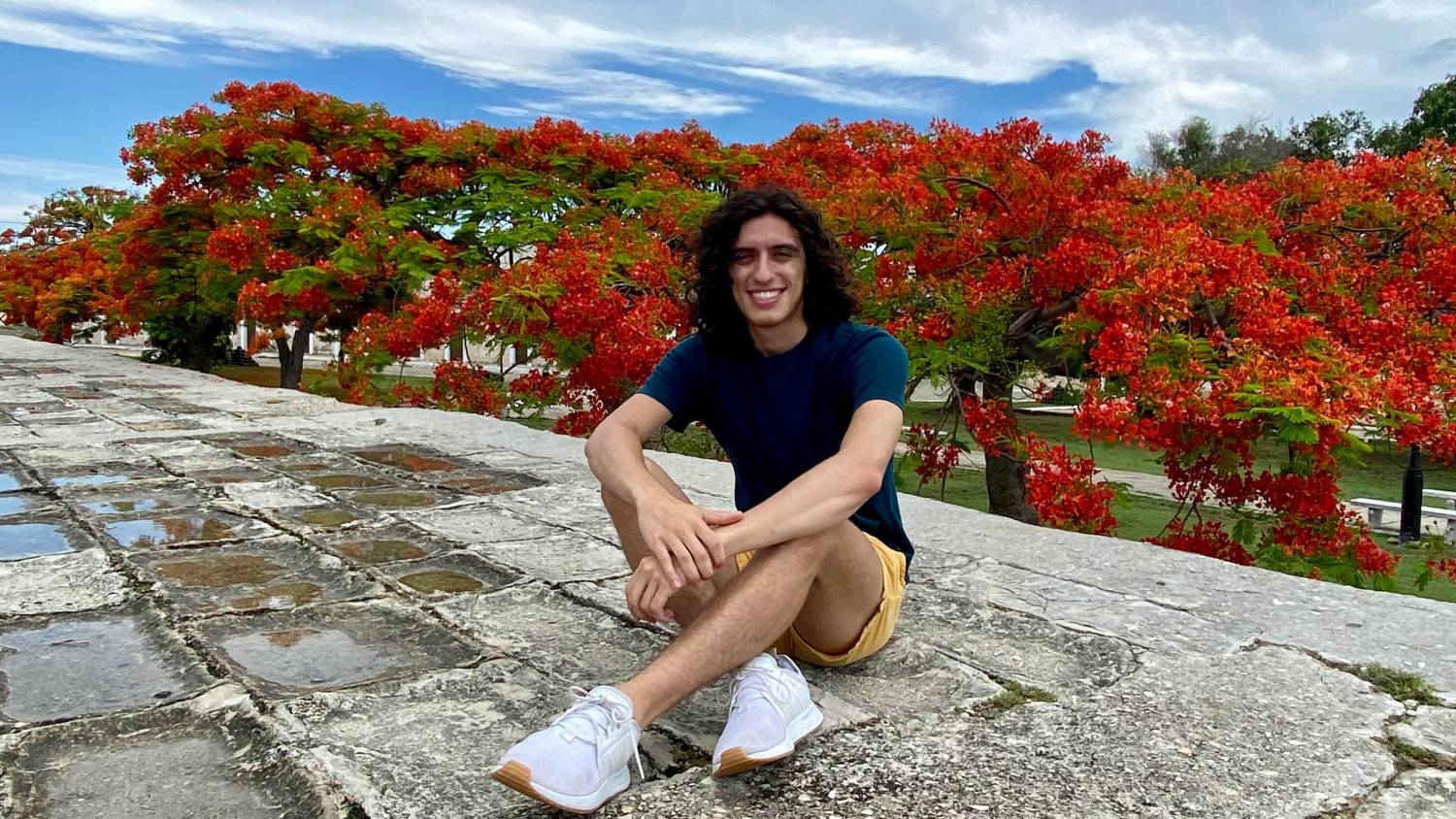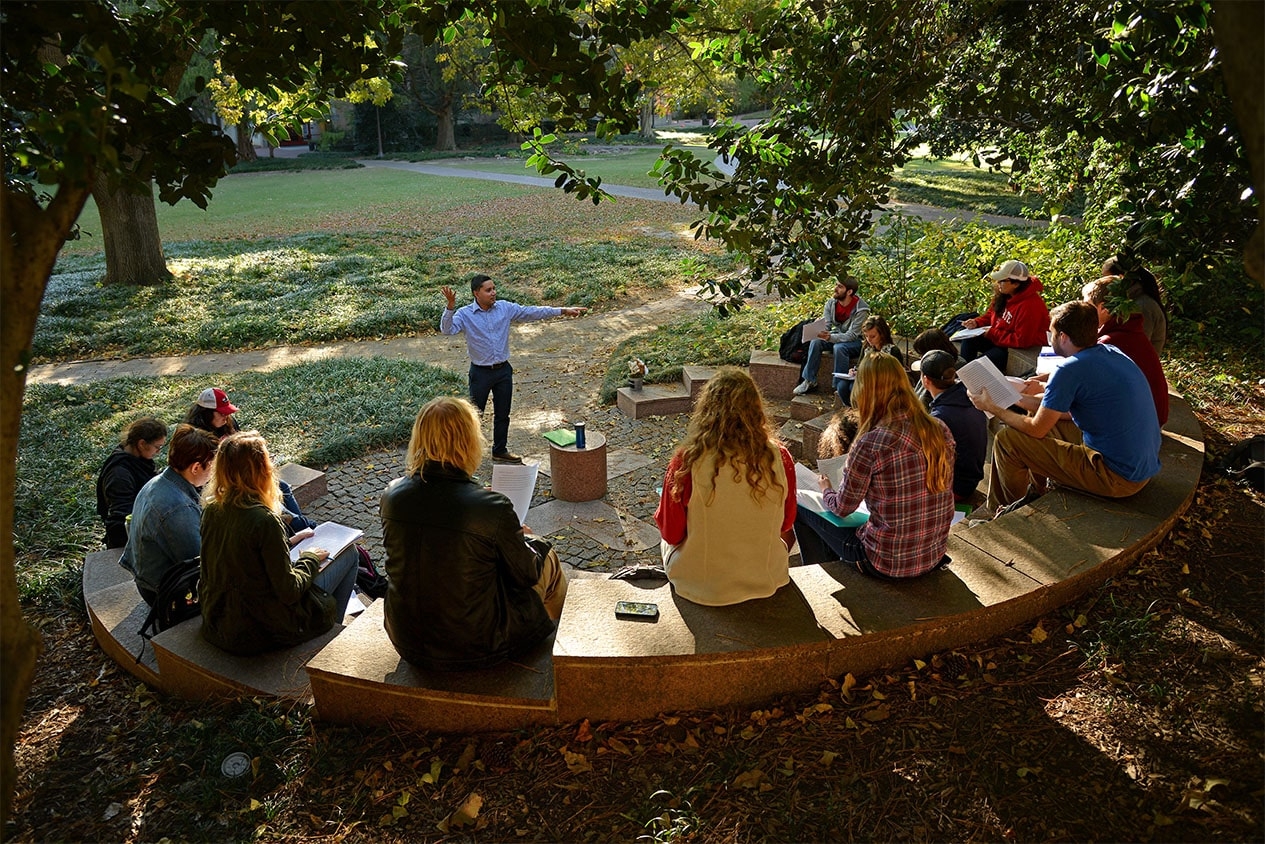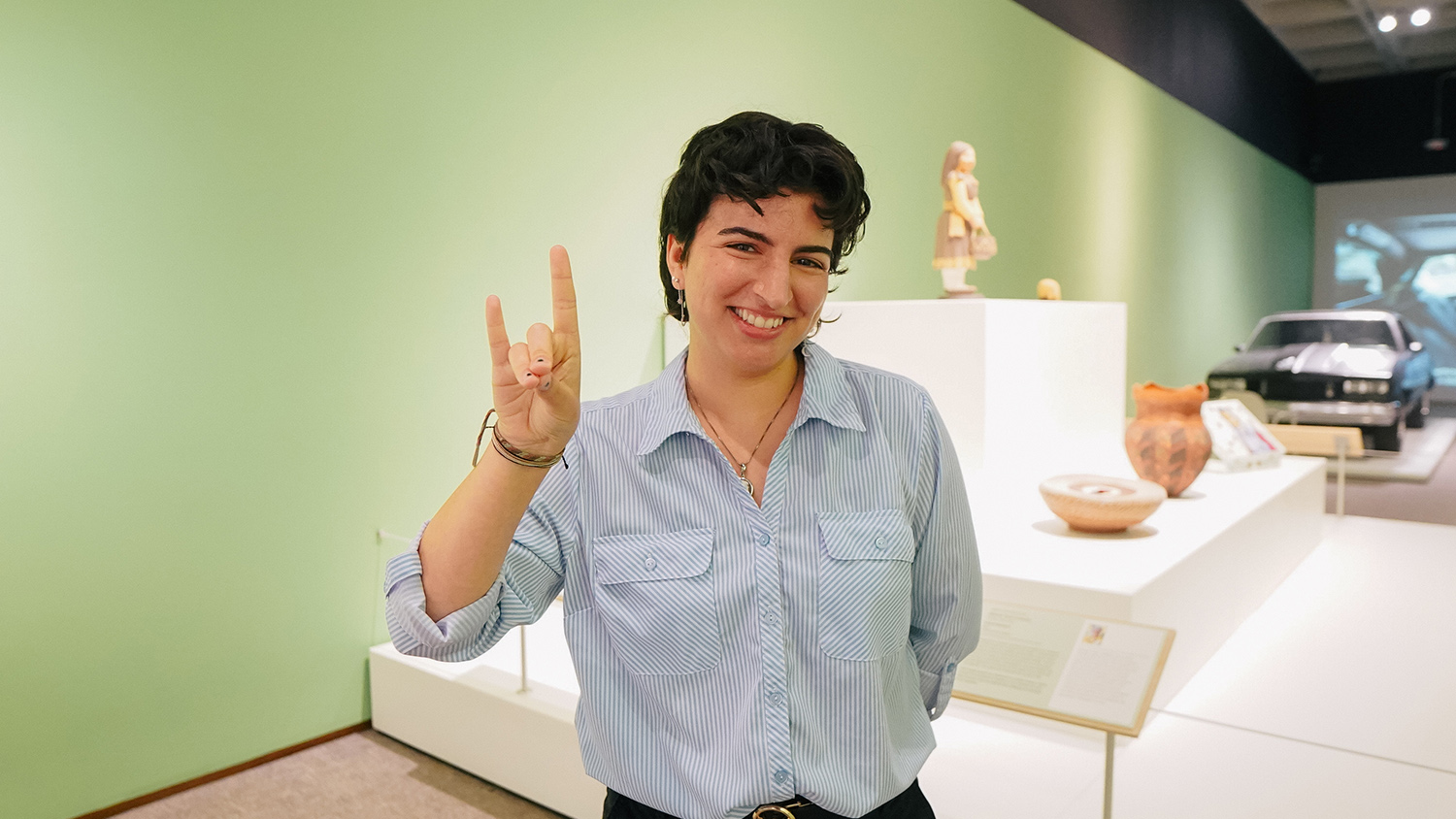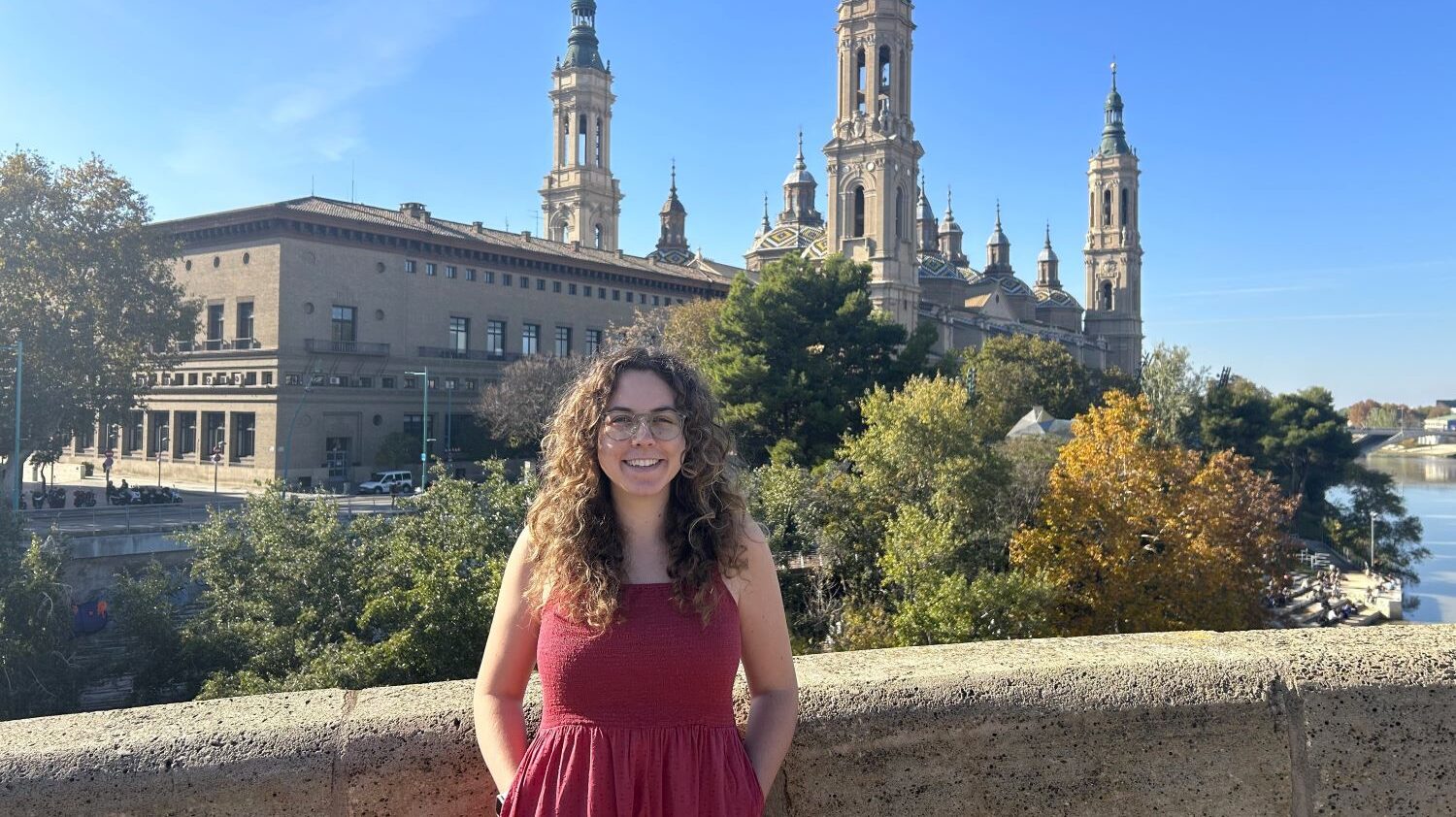Learn about different cultures and countries.
That’s one of senior Joshua Wasserman’s true passions. It is also a key reason the double major in Spanish and international studies lived in Havana, Cuba, for two weeks this summer as part of an NC State study abroad program.
“I love the country and people,” Wasserman said of the island nation, which he had previously visited in 2022 while on a mission trip. “I wanted to return in a more academic context to learn deeper about the country’s politics and history.”
He also loves Spanish, which he learned growing up from his mom, a native of Mexico. To him, practicing his Spanish language skills daily while in Cuba was an added bonus.
Wasserman, whose international studies concentration is in global relations, said lessons learned from his trip will also prepare him for his future.
“It exposed me to an international environment that involved politics, history and Spanish, and was like no other,” he explained. “Previous skills such as adaptability and flexibility were refined, and new creative and analytical skills were cemented.”
We caught up with Wasserman to learn more about studying in Cuba, plans for the future, study abroad advice and more.
What classes did you take while you were in Cuba?
As an international studies major, it is a requirement to take six credit hours abroad. I took two classes: Cuba Environmental History and Cuba Today: Historical and Sociopolitical Perspectives.
As part of the courses, I took trips to other areas of Cuba to see the historical effects of important events. One example was seeing the abandoned sugar mill, “central,” in Camilo Cienfuegos, Cuba — a town originally known as Hershey town. These mills were abandoned because of Fidel Castro’s policies to protect the environment. The sugar industry had a great socio-ecological impact on Cuba and its landscape.
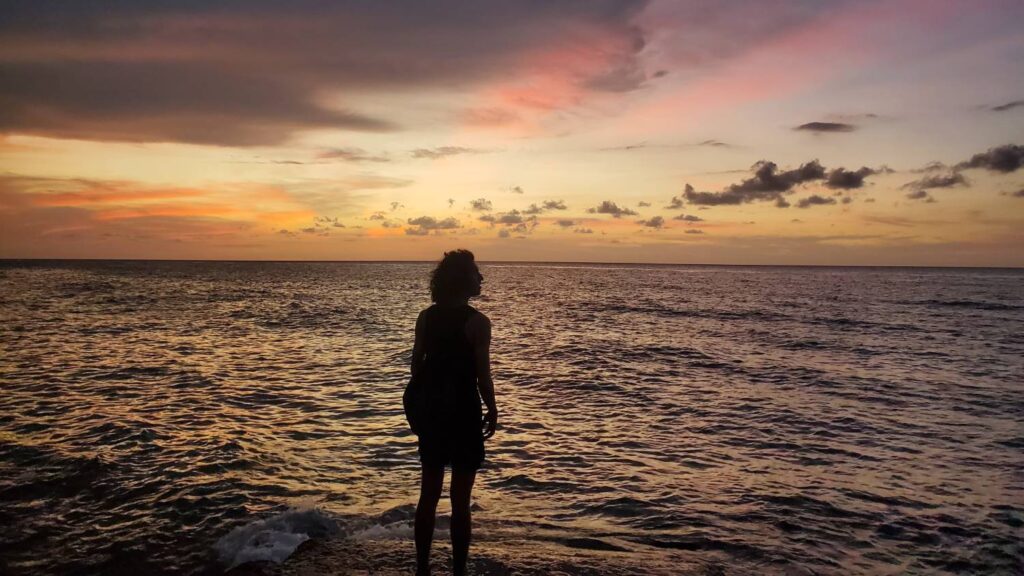
What was your favorite part of the trip, place to visit and activity?
I liked living with a host family in Old Havana and immersing myself in the culture. Since classes ended by 1 p.m., I had the rest of the afternoon to explore the city, or even take trips to other nearby towns.
My favorite place to visit was the town of Viñales. There, I saw vast mountain ranges and historically significant tobacco farms which, second to sugar, play an important role in Cuba’s economy.
My favorite activity? I enjoyed walking around the city, getting purposefully lost, and finding a café where I could get myself a cortadito.
How were your classes abroad different than if you had taken them at NC State?
There is no other country like Cuba in the world. My classes basically continued inside and outside the classroom. The line between in-class and after-class blurred. You could see the effects of what you learned in class from Cuban professors. You can apply what you learn by asking local people about what is the conventional wisdom surrounding what occurred versus what happened.
What did you learn from the trip and about yourself?
I learned not to take something at face value — whether it is something I heard from my host family, a taxi driver, or Cuban professors. I also developed my analytical skills in determining what is most likely true and what can be supported by evidence. I carried many different narratives with me to Cuba and confronted new narratives and perspectives. I did my best in deconstructing those that needed to be deconstructed and made others multidimensional instead of two-dimensional.
What I learned about myself is that I enjoy learning outside the traditional classroom setting and my CHASS “toolbox” has equipped me to succeed in international settings.
How will this experience impact your time at NC State?
It has given me new ideas and perspectives that I can apply directly to my research. Coming into the fall and spring semesters, I can use what I learned firsthand in Cuba and apply those to my classes and elevate classroom discussions.
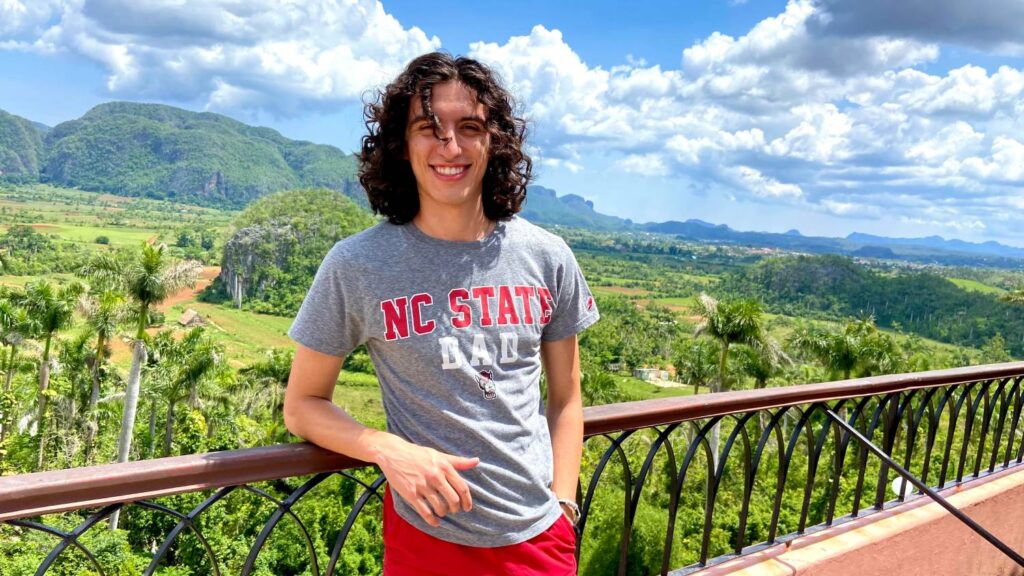
What advice would you give students wanting to study abroad?
Just go! Go somewhere where you know the language, or don’t. Go somewhere where you have been before, or someplace completely new. Most importantly, apply for scholarships.
What’s next?
I plan to go abroad after I graduate in May through fellowships, scholarships, work or volunteering with the Peace Corps. After that, I will go to grad school for international relations or international security. Of course, my time at NC State has taught me to be flexible and adaptable, and I am open to different opportunities.
